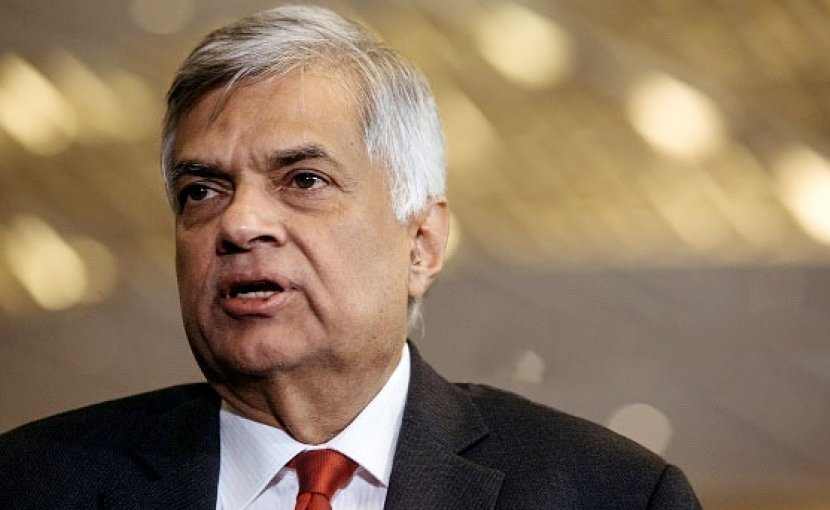Colombo: Prime Minister Ranil Wickremesinghe has said that the government had known about Sri Lankan nationals who had joined the Islamic State (IS) and had returned to the country, but they could not be arrested as joining a foreign terrorist organisation is not against the law.
The IS group has claimed responsibility for the Easter Sunday terror attacks three Catholic churches and three luxury hotels that claimed 253 lives but the government has blamed a local Islamist extremist group National Tawheed Jamath (NTJ) for the bombings.
“We knew they went to Syria… But in our country, to go abroad and return or to take part in a foreign armed uprising is not an offence here,” Wickremesinghe was quoted as saying by ‘Sky News’.
“We have no laws which enable us to take into custody people who join foreign terrorist groups. We can take those who are, who belong to terrorist groups operating in Sri Lanka,” Wickremesinghe added.
Facing public criticism for not acting against Islamist extremist groups in the island nation, Wickremesinghe said some of the suspected attackers responsible for the Easter bombings were being monitored by the country’s intelligence services. But authorities did not have ‘sufficient’ evidence to place the suspected attackers in custody prior to the attacks, he said.
Wickremesinghe told another news channel that he did not rule out the possibility of more attacks in the country. He said authorities were now focussing on ‘sleepers’ – terrorists who could activate another round of attacks.
“Police and security forces are rounding up those involved, but they’re also rounding up the sleepers, those used on second and third rounds (of attacks),” stated Wickremesinghe.
Meanwhile in another development Friday the UK and Australia have advised their citizens not to travel to Sri Lanka unless their journey is essential as terrorists were ‘likely’ to carry out further attacks in the country. In a way they confirmed what Wickremesinghe had said earlier.
In the immediate aftermath of the bombings, the the UK Foreign Office (FCO) updated its guidance, urging British citizens in the country to avoid large gatherings. But Friday it went further, warning about the potential for more attacks.
“The Foreign and Commonwealth Office advise against all but essential travel to Sri Lanka, due to the current evolving security situation following attacks on April 21 2019,” it said. “Terrorists are very likely to try to carry out attacks in Sri Lanka. Attacks could be indiscriminate, including in places visited by foreigners.”
Tourism is a major source of income for Sri Lanka and the industry has only in recent years begun to recover after the 26-year civil war.
In 2009, there were 4,48,000 foreign visitors to the country, but since 2016, the figure has leapt to more than two million a year.
